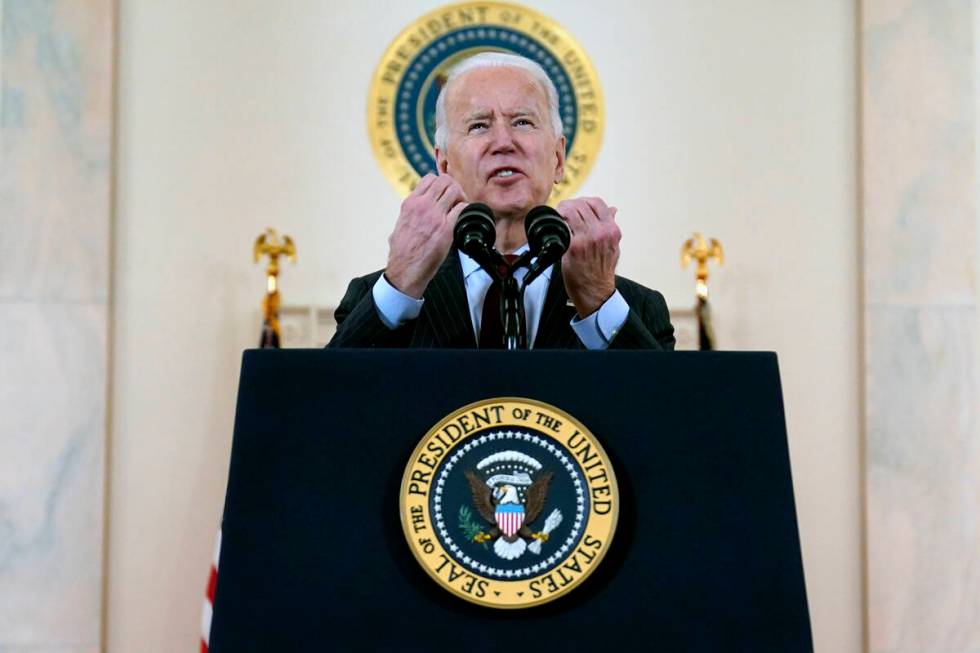EDITORIAL: Billions for virtually nothing

Biden surrogates insist that the massive spending bills which triggered the inflation that helped bring down Democrats in November will pay large dividends in coming years. As President Joe Biden shuffles off the stage this month, it’s worth taking a closer look at this claim.
The 2021 Infrastructure Investment and Jobs Act (in progressive-speak, politicians who spend other people’s money are “investing”) showered more than $1 trillion on hundreds of projects, most of the green energy variety. Prominent among them were handouts to build EV charging stations and billions to expand broadband access.
As might be expected, however, given that the legislation was promoted by champions of the regulatory state, both initiatives were mucked up with government mandates intended to sate favored special interests rather than to efficiently accomplish the task at hand.
Take the EV charging plans. More than three years removed from passage of the infrastructure bill, the program, as of October, had built 19 charging stations in nine states, according to E&E News by Politico. Democratic Sen. Jeff Merkley of Oregon called this a “vast administrative failure.” Many state officials blame the legislation itself, which includes a host of requirements regarding how and where the stations may be built and who must build them.
“You’ve got federal government, multiple federal agencies. You’ve got, oftentimes, multiple state agencies — the DOT, sometimes the Department of Energy, sometimes the environmental department,” one state transportation official explained. “And then you’ve got local governments. You’ve got one, two, three private partners. You could have a site host and operator and equipment supplier, and then, you know, their subcontracting.”
The result is a mess. As Joe Lancaster of Reason noted, over the same time frame, “Tesla Motors more than doubled its public charging stations” in the United States.
The broadband project has fared even worse. “Three years after its creation,” Mr. Lancaster wrote this month, “the program has disbursed no money and supplied broadband to zero households.”
It’s an eerily similar failure. “The rules require states accepting the money to make sure providers plan for climate change, reach out to unionized workforces and hire locally,” Politico wrote in September. “One vague but broad provision requires low-cost options and fast connections for ‘middle class families’ at ‘reasonable prices.’”
The result is a multibillion-dollar government endeavor beset by inertia and strangled by red tape.
Perhaps the coming years will be kinder to these efforts. A more likely result, however, is that these two expensive government programs will become the latest examples of the truism that if you want something done, leave it to the private sector rather than politicians and bureaucrats.